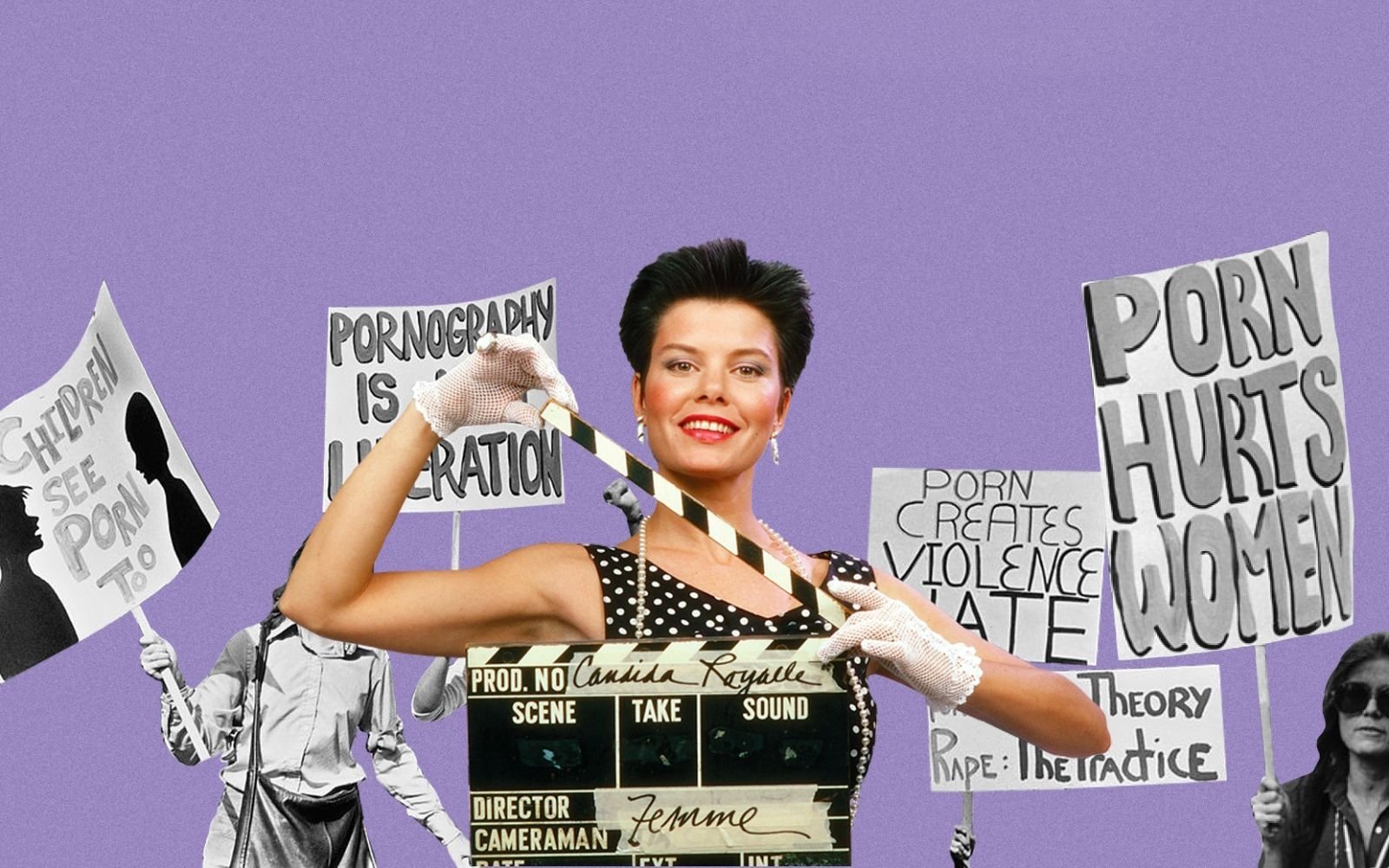Exploitation vs. Exploration
The battling feminist perspectives on the porn industry
Written by Maddie Tjalsma, Contributing Writer
Second-wave feminism, beginning in the 1960s and spanning roughly two decades, was largely led by lesbian feminists who discussed issues of discrimination, equality and sexuality (McBride, 2008). The discourse surrounding sexuality stemmed from lesbianism, heterosexuality, sex work and pornography. Due to the growing participation of heterosexual women in the movement at this time, feminists of this era were met with an issue they could not collectively organize around: pornography. Feminist theorists refer to this period as “the sex wars” (McBride, 2008).
Lesbian feminists were at the forefront of the anti-porn side and they believed pornography was a perpetuation of patriarchal sex standards (McBride, 2008). They saw the promiscuous sexual relationships portrayed in porn as an enforcement of male dominance in sexual relations, and they viewed sexuality as a means to form lasting bonds and relationships (Ferguson, 1984). To counter this movement, pro-sex feminists were primarily heterosexual women who thought suppressing porn was a form of censorship and believed in unapologetic sexual freedom. They believed sexuality was meant for the exploration of female pleasure and promiscuous sex was a form of expression (McBride, 2008). Both sides of this movement focus on theories of sexual freedom, social power and human sexuality. The contrasting viewpoints of the era did not allow for the intersection of ideas and values, but retroactively enforced rigid rules on how women and broader society should view sexuality.
Today, feminists and society still have differing perspectives on pornography and sexual expression. Women’s sexuality is more embraced than it once was––perhaps thanks to the pro-sex feminists of the ‘70s and ‘80s––but there are still subliminal messages of male dominance during heterosexual sex relations that are perpetuated by porn and broader media (Lemma, 2021).
Social media and the internet create more options for pornography to be created and shared and provide more opportunities for young people to be influenced by porn at an early age. This can be harmful to everyone: for men who see sex as something they deserve from women, for women who will believe they owe others (possibly unsafe) sex and for minorities and marginalized groups who may only see themselves represented in pornography as a kink or fetish rather than someone who is equally deserving of safe and pleasurable sex (Lemm, 2021). Pornography should not be the first and only introduction to sex for teenagers. To combat these issues, comprehensive sex education for young people is crucial to juxtapose what they learn from pornography.
No matter your opinion, one thing is for sure: porn is not going away. But it doesn’t necessarily have to if society changes some things about the way it consumes porn. New websites like OnlyFans have created a space for people to own and personally profit from pornography (Espinoza, 2022). Some creators even take to social media platforms to help normalize their lifestyles, like young pornography actress Stella Barey who balances her racy content with philosophy book recommendations and honest conversations about her career (Barey, 2022). Other websites like Bellesa and Lust Cinema are inclusive, women-directed pornography sites that value and celebrate representation and female pleasure rather than monopolizing it (Weiss, 2022).
The modern porn industry allows a compromise for today’s feminists that second-wave feminists did not have: the ability to simultaneously accept sexual freedom while still acknowledging partner safety, pleasure and representation. Feminism today has also begun to address the intersectional struggles of racial minorities and disabled women as they navigate their sexuality, issues that were not addressed during the first and second waves of the feminist movement. Infinite experiences and perspectives on pornography and sexuality may exist together.
You can enjoy sex or pornography or be uncomfortable with it and still be a feminist. Furthering feminism means advocating for the freedom of all those opinions.
Sources:
Barey, S. [@bareybaby]. (n.d.). Tweets [Twitter profile].
Espinoza, J. (2022). OnlyFans Explained: What You Need to Know About the NSFW Site. Complex.
Ferguson, A. (1984). Sex War: The Debate Between Radical and Libertarian Feminists. Signs.
McBride, A. (2008). The Sex Wars, 19702 to 1980s. OutHistory.
Lemma, A. (2021). Introduction - Becoming Sexual in Digital Times: The Risks and Harms of Online Pornography. The Psychoanalytic Study of the Child.
Weiss, S & Gonzalez, I. (2022). Porn for Women: 21 Feminist Porn Sites You’ll Really, Really Enjoy. Glamour.
